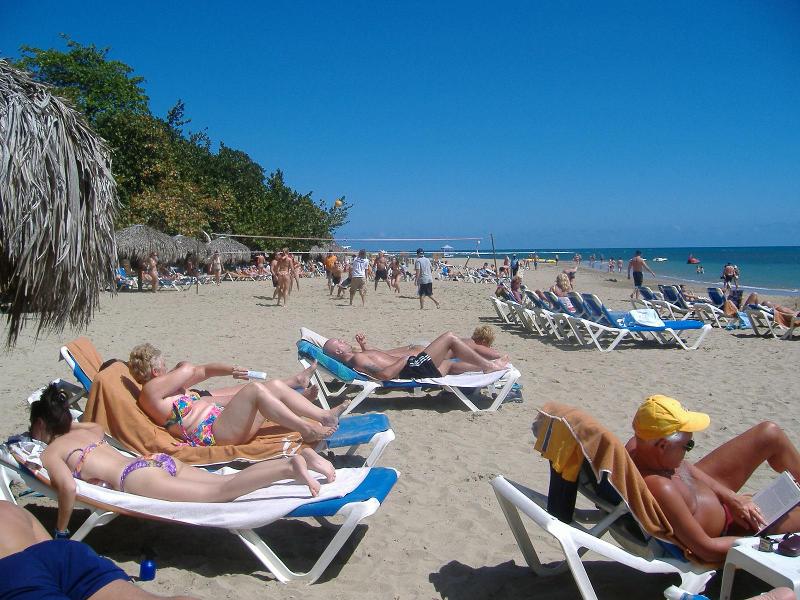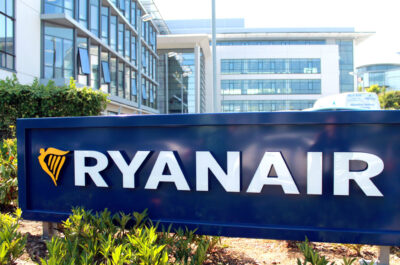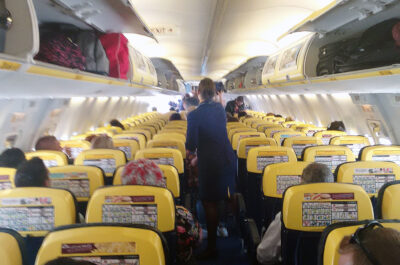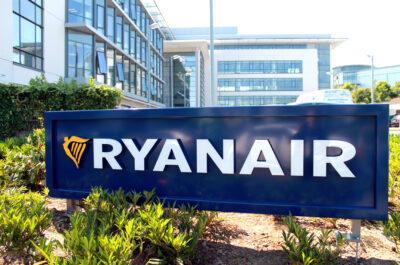One in 10 Britons exchange holiday cash at the airport; 6% of Brits never use cash abroad on holiday. Cheaper prepaid cards not as popular as credit or debit cards.
Despite inflated fees and poor exchange rates, a survey conducted by leading beach holiday specialist On the Beach, has revealed that many Britons are losing money by waiting until the very last minute to change their Sterling to foreign currency at the airport.
One in 10 holidaymakers admit to exchanging their Sterling at airport booths across, despite continuous warnings of the poor rates on offer.
Research from On the Beach has found that airport exchange booth rates can be as much as 28% lower than those available online. On a purchase of 700 euros, consumers could be losing £174, with a total cost of £787 at Stansted airport in comparison to £613 using an online currency site.*
Some of the best rates can be found online and through pre-ordering but only a fifth of Brits (17%) opt to use these cheaper exchange websites, unlike the vast majority (69%) who use traditional high street stores or the Post Office.
In-resort spending
The trend also continues when in-resort, with 17% of holidaymakers admitting to using only their standard credit cards for everyday holiday purchases, such as food and drink, rather than specialist travel credit cards that offer 0% rates. This is a convenient but considerably more expensive way of spending when you take into account the 2.99% non-sterling fees enforced by a number of credit card providers. A similar trend can be seen with debit card use.
Although prepaid cards are widely regarded as one of the cheapest forms of payment for those on holiday, the survey found that they are not yet popular amongst British travellers, with a mere 7% choosing to use these cards when in-resort.
Whilst cash is king for the majority (54%) of British holidaymakers, 6% said they have never actually used foreign currency when holidaying abroad and instead rely solely on credit or debit cards.
Holiday spending trends are changing, with Travellers Cheques which were first issued on 1 January 1772 becoming all but obsolete, with only 2% of Brits still using this seemingly outdated method. Surprisingly however, they are now most popular amongst the younger generation, with 4% of 25-34 year old’s saying they use the cheques to pay for items in-resort. Are traveller’s cheques making a vinyl-esque come back?
Unused foreign currency
The survey also revealed that, although more than half of Brits (57%) bring their unused foreign currency back home with them and take it away on their next holiday, 17% said that they bring it home only to forget it on future trips, instead leaving it to gather dust in drawers at home.
Millennials are the biggest culprits, with more than a quarter (26%) neglecting to use leftover cash on future trips, whilst only one in 10 of the over 55s forget to take it with them when they next travel abroad.
More than a quarter (28%) simply spend their unused currency at the airport – frequently on unwanted items – just to ‘get rid’ of the cash and one in 10 thoughtful Brits, give their unused foreign money to charity, often onboard the aircraft on their way home.
On the Beach has teamed up with TV money and consumer expert Sue Hayward, to provide key tips for consumers on getting the most from their holiday spending money.
Sue Hayward, Personal Finance and Consumer Expert comments: “We look forward to our holidays but develop holiday fever when it comes to our spending habits. This research from On the Beach shows that large numbers of us are losing money by buying currency last minute at the airport, and not capitalising on the huge savings that could be made through purchasing currency in advance, as well as ditching our everyday debit and credit cards when on holiday abroad.
“To boost the power of your pound, shop around to stock up on currency, take a credit card with zero rates on overseas spending and make sure you’ve got cash in your pocket if you want to haggle for bargains”.
Alan Harding, Marketing Director at On the Beach comments: “Our survey shows that many British holidaymakers could save money when they travel abroad, simply by planning ahead and shopping around for the best options.”
“It’s easy to underestimate the impact that exchange rates and credit card costs might have on our overall holiday spending, but this research will help to highlight the staggering amounts of hard-earned cash that people can save enabling travellers to get the very best value from their holiday.”
Top tips on holiday spending from money expert, Sue Hayward:
- Don’t buy currency at the airport. It may be easy, but it’s a waste of money as rates are usually much lower than the high street or from ordering in advance online.
- Packing a ‘pre-paid’ card means you can lock in your exchange rate and saves carrying a wallet full of cash.
- Stock up on small change. Ask for some smaller notes when changing money, or you may have a job breaking a 100 Euro note for a £5 taxi ride.
- Pay in the local currency. If you’re paying by card, shops and restaurants may offer to switch the bill into pounds, but just say no! This is known as ‘Dynamic Currency Conversion’ and bumps up the bill.
- Protect your cash. Check travel insurance limits, only take what you need out with you each day, and keep spare cash locked in the hotel safe.
* Airport exchange rates (Sterling to Euros) were checked on 4th March 2019 at Travelex, MoneyCorp and ICE airport booths at Cardiff, Edinburgh, Heathrow, Liverpool, Manchester, Southampton and Stansted airports
* Source: https://www.hsbc.co.uk/international/using-your-card-abroad/
** Source: https://personal.natwest.com/personal/life-moments/travel/spending-abroad.html
Vicky is the co-founder of TravelDailyNews Media Network where she is the Editor-in Chief. She is also responsible for the daily operation and the financial policy. She holds a Bachelor's degree in Tourism Business Administration from the Technical University of Athens and a Master in Business Administration (MBA) from the University of Wales.
She has many years of both academic and industrial experience within the travel industry. She has written/edited numerous articles in various tourism magazines.
































































































































































































